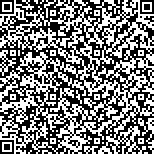| Quote
: |
丁振涛, 韩荣荣, 余彦彤, 黄成, 黄保生, 朋汤义, 韩燕全.基于HMGB1炎症通路的苍耳子砂炒减毒机制研究[J].湖南中医药大学学报英文版,2024,44(7):1175-1180.[Click to copy
] |
|
| |
|
|
| This paper
:Browser 2065times Download 1047times |
| 基于HMGB1炎症通路的苍耳子砂炒减毒机制研究 |
| 丁振涛,韩荣荣,余彦彤,黄成,黄保生,朋汤义,韩燕全 |
| (安徽中医药大学第一附属医院, 安徽 合肥 230031;安徽中医药大学, 安徽 合肥 230601) |
| 摘要: |
| 目的 基于高迁移率族蛋白B1(high mobility group box protein B1, HMGB1)炎症通路对苍耳子砂炒减毒的机制进行研究,为其炮制减毒机制提供实验依据。方法 选取正常KM雄性小鼠随机分为正常组、生品组和砂炒组,每组10只。连续灌胃给药14 d,生品组和砂炒组灌胃相应药物,正常组灌胃等量生理盐水,于第14 d给药后1 h检测小鼠血清丙氨酸转氨酶(alanine transaminase, ALT)、天冬氨酸转氨酶(aspartate transaminase, AST)水平;测定小鼠体质量和肝脏系数;HE染色观察小鼠肝组织病理学情况;ELISA检测小鼠血清中炎症因子HMGB1、白细胞介素(interleukin, IL)-1β、IL-2和肿瘤坏死因子α(tumor necrosis factor-α, TNF-α)水平;Western blot和RT-qPCR法分别检测小鼠肝组织中HMGB1、核因子κB (nuclear factor-κB, NF-κB)和Toll样受体4(Toll-like receptor 4,TLR4)蛋白和mRNA表达水平。结果 给药结束后,与正常组相比,生品组和砂炒组血清中AST、ALT检测值升高(P<0.05),体质量降低(P<0.05),肝脏病理结构损伤,脏器指数增加(P<0.05);血清中HMGB1、IL-1β、IL-2和TNF-α水平较正常组均升高(P<0.01);但砂炒组较生品组的值低(P<0.01);Western blot和RT-qPCR法检测结果表明,给药组肝组织中HMGB1、TLR4和NF-κB的mRNA蛋白表达均较正常组升高(P<0.05),但生品组比砂炒组更加明显(P<0.05)。结论 苍耳子具有一定的肝毒性,砂炒后其毒性明显降低,减毒机制可能与调控HMGB1-TLR4/NF-κB炎症通路有关。 |
| 关键词: 苍耳子 砂炒法 肝毒性 HMGB1炎症通路 生物学机制 |
| DOI:10.3969/j.issn.1674-070X.2024.07.005 |
| Received:December 13, 2023 |
| 基金项目:国家重点研发计划项目(2023YFC3504202);安徽省高校自然科学基金重点项目(2023AH050779);安徽省名中药师工作室项目(皖财社〔2023〕23号);安徽省中医药学术流派传承工作室建设项目(皖中医药发展秘〔2021〕30号)。 |
|
| Toxicity reduction mechanism of Cangerzi (Xanthii Fructus) stir-fried with sand based on HMGB1 inflammatory pathway |
| DING Zhentao, HAN Rongrong, YU Yantong, HUANG Cheng, HUANG Baosheng, PENG Tangyi, HAN Yanquan |
| (The First of Hospital of Anhui University of Chinese Medicine, Hefei, Anhui 230031, China;Anhui University of Chinese Medicine, Hefei, Anhui 230601, China) |
| Abstract: |
| Objective To study the toxicity reduction mechanism of Cangerzi (Xanthii Fructus) stir-fried with sand based on high mobility group box protein B1 (HMGB1) inflammatory pathway, and to provide experimental basis for the toxicity reducing mechanism of its processing. Methods KM male mice were randomized into normal, raw Cangerzi (Xanthii Fructus), and Cangerzi (Xanthii Fructus) stir-fried with sand groups. The raw Cangerzi (Xanthii Fructus) and Cangerzi (Xanthii Fructus) stir-fried with sand groups were given corresponding drugs by gavage, respectively, the normal group was administered with the same amount of normal saline by gavage, for 14 d continually. The serum alanine transaminase (ALT) and aspartate transaminase (AST) of mice were measured 1 h after administration on the 14th day. The body mass and liver coefficient of mice were tested. The liver histopathology of mice was observed after HE staining. The serum levels of inflammatory factors HMGB1, interleukin-1β (IL-1β), interleukin-2 (IL-2), and tumor necrosis factor-α (TNF-α) of mice were determined by ELISA. Western blot and RT-qPCR were performed to test protein and mRNA expression levels of HMGB1, nuclear factor-κB (NF-κB), and Toll-like receptor 4 (TLR4) in liver tissues of mice, respectively. Results After the administration, compared with the normal group, the serum values of AST and ALT of the raw Cangerzi (Xanthii Fructus) and Cangerzi (Xanthii Fructus) stir-fried with sand groups increased (P<0.05), the body mass decreased (P<0.05), the pathological structure of the liver was damaged, the liver index increased (P<0.05), and the serum levels of HMGB1, IL-1β, IL-2, and TNF-α were all higher (P<0.01). Meanwhile, the values of Cangerzi (Xanthii Fructus) stir-fried with sand group were lower than those of raw Cangerzi (Xanthii Fructus) group (P<0.01). Westen blot and RT-qPCR showed that the protein and mRNA expressions of HMGB1, TLR4, and NF-κB in liver tissue of the medication groups were all significantly higher (P<0.05), which were more obvious in the raw Cangerzi (Xanthii Fructus) group than those in the Cangerzi (Xanthii Fructus) stir-fried with sand group (P<0.05). Conclusion Cangerzi (Xanthii Fructus) has certain hepatotoxicity, and its toxicity was significantly reduced after being stir-fried with sand. The toxicity reduction mechanism may be related to the regulation of HMGB1-TLR4/(NF-κB) inflammatory pathway. |
| Key words: Cangerzi (Xanthii Fructus) method of stir-frying with sand hepatotoxicity high mobility group box protein B1 inflammatory pathway biological mechanism |
|

二维码(扫一下试试看!) |
|
|
|
|


